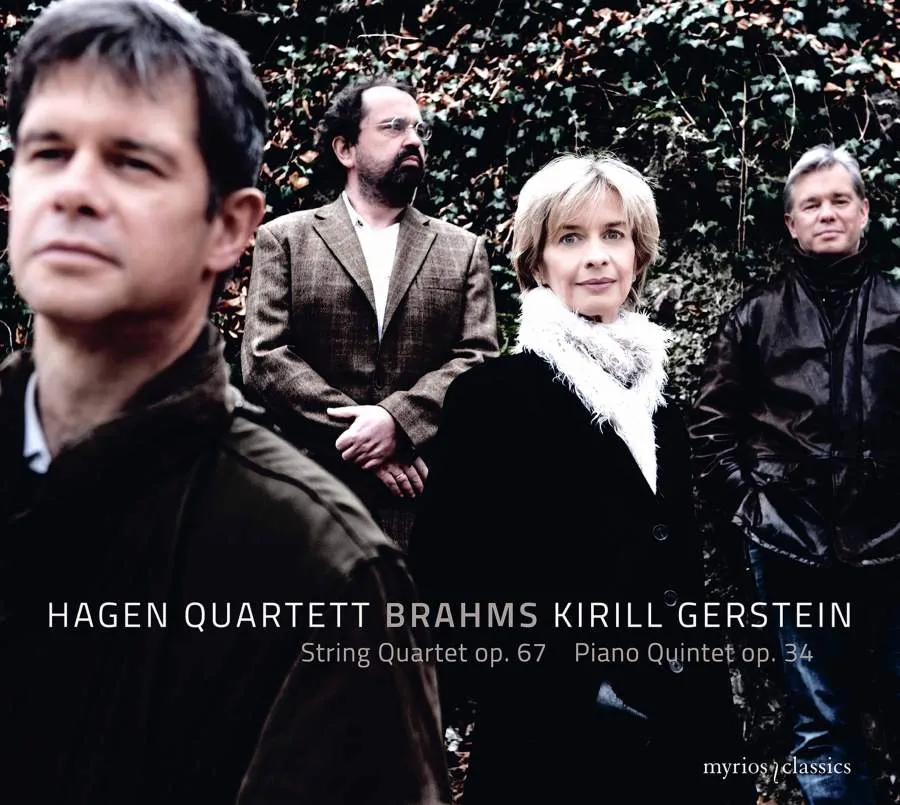
Brahms String Quartet No. 3, Op. 67; Piano Quintet, Op. 34 Hagen Quartett, Kirill Gerstein (piano) Myrios Classics MYR021 80:17 mins
This recording left me undecided. This is technically flawless playing, and discipline and rigour also shape the interpretations. The plangent harmonies are kept firmly in order. The dynamic range – although this may be the producer’s decision – is also narrower than one might expect. The fine-bored vibrato is disciplined, occasionally to the point of parsimony, evoking the orderly world of Haydn rather than late Romantic pathos.
The rest of the string timbral range is imaginatively exploited, with an especially striking, luminous vibrato-free sound enabling miraculous clarity of texture in such densely-written music. The tempos, thankfully, are never arbitrarily hasty – the closing movement of the Piano Quintet is particularly well-paced and characterful – but the performance of this is remarkable for its metric strictness. The pay-off is in the impressive flow which holds the enormous structures together.
Still, I missed the softer edges and rounder corners which Brahms would have expected; this is the world of his native North Germany, rather than the more indulgent, emollient Viennese comfort in which he chose to settle. The Piano Quintet, dating from Brahms’s pre-beard days, could be more wayward and impetuous; this interpretation is grandly tragic and dignified, but Brahms’s more startling harmonic twists end up sounding a touch matter-of-fact and familiar.
It’s a perfectly valid approach, but I prefer a little more warmth and vulnerability. The rare moments of elasticity are perhaps more special because of their rarity. If not the most moving recording, it certainly is thought-provoking and polished. For this group, less is indeed more.
Natasha Loges